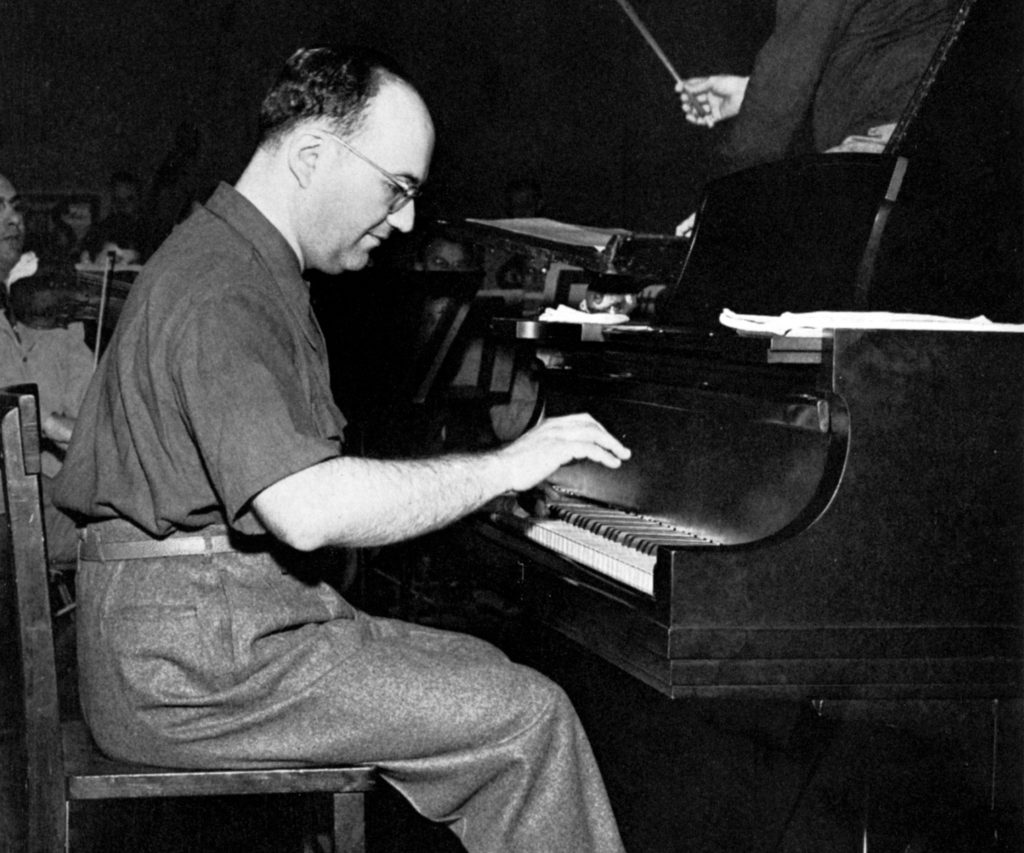Years ago, as a youthful Bartók acolyte, I learned the three piano concertos via Géza Anda’s marvellous DG recordings (with Ferenc Fricsay conducting) and the solo piano works from György Sándor’s near-complete series on Vox. Years later I acquired Andor Foldes’ DG mono set of the solo works (less comprehensive than Sándor’s but still representative) and was amazed at just how different the music sounded, chiselled and well drilled as opposed to improvisatory and relatively unbuttoned, which was more the case with Sándor.
Andor Foldes – Complete Deutsche Grammophon Recordings is out now on Eloquence

Foldes is at his best in the pile-driving opening movements of the Sonata and the suite Out of Doors, but he also achieves a sense of stillness in the slower music (the Suite’s ‘Night Music’ for example), and being Hungarian-born his mastery of the Hungarian folk idiom is evident in his grandly assertive performances of, for example, Kodály’s Marosszék Dances and Háry Janós suite (excerpts), the latter as arranged by Foldes himself. All of these recordings have already been released on Australia’s miracle reissue label Eloquence but now find themselves boxed together with countless other goodies in the context of a handsome and superbly documented 19-cd bargain set ‘Andor Foldes: Complete Deutsche Grammophon Recordings’, (484 1256).
If it were possible to wear out cds, I’d already be on my second set – and I’ve only had it a week! I kid you not, this is for the most part remarkable playing, the first disc devoted to elderly Decca/Polydor recordings (1949/1950) of music by Prokofiev and Bartók, the latter’s Sonata similar in concept to the better recorded DG re-make, the Second Concerto (with the Lamoureux Orchestra under Eugène Bigot) tight as a drum ensemble-wise (premonitions of Anda and Fricsay), with a central movement that comes closer than any I’ve encountered to Bartók’s own rule-bending revelation (ie, a pretty dire-sounding pre-war broadcast recording of excerpts issued by Hungaroton).
Other early recordings, never previously released on CD (the vinyl originals are as rare as hen’s teeth) originate from Mercury’s earliest years and consist of music by Schumann (including a quite magical account of ‘Papillons’) and Grieg (Norwegian Peasant Dances), Foldes proving himself as adept in the musical folklore of Norway as he is – or was – in the folkish works of Bartók and Kodály.
The other indispensable 20th century repertoire disc features music by Barber, Copland, Stravinsky, Thomson and Albéniz. It’s fascinating to compare Foldes’s relatively inwards-looking account of Copland’s magnificent solo Sonata with Leon Fleisher’s stereo version from just a few years later (recently reissued as a bonus CD in Sony Classical’s admirable Fromm Music Foundation 20th Century music collection, 19439715642), Fleisher equally nimble but more assertive whereas in the Vivace Foldes seems to be dancing among the shadows of another world. Then again Foldes humanises the sustained finale like no-one else – while in his hands Stravinsky’s Sonata could be said virtually to define neoclassical elegance.
The beauty of Foldes’s playing is in the way he articulates every note of each piece, even at speed, though speed is never an end in itself, as is obvious from his thoughtful yet viscerally exciting account of Liszt’s B minor Sonata (the sort of reading I could imagine Lipatti giving) and the brilliant opening of Bach’s Chromatic Fantasia and Fugue while the first movement of Beethoven’s Waldstein Sonata dazzles with its clarity, precision and faultless sense of rhythm. Foldes’s Beethoven in general has both muscle and bounce (virtually half of the sonata cycle is included), the opening movement of the Sonata Op. 7 like that of his idol Wilhelm Backhaus (I’m thinking of Backhaus’s second [stereo] recording in particular) a model of how to ‘explain’, in performance terms, the common sense of sonata form.

The First Concerto under Ferdinand Leitner is another instance of immaculate musical judgement, the fun-filled finale both swift and sparkling. And there are the Mozart concertos (five are included), the Andante of No. 15 in B flat a performance that gave rise to the claim at the head of this review, ie ‘perfection with a purpose’. I’ve heard Mozart playing that’s as good as this, but none that’s better. So a rapturous thumbs-up from me for a set that although unlikely to reveal all its secrets in one go has enough in store to nourish you for a lifetime. These sets tend not to hang around forever but on the off chance that you do – make sure to have this one on your shelves, a worthy accompaniment for eternity!



